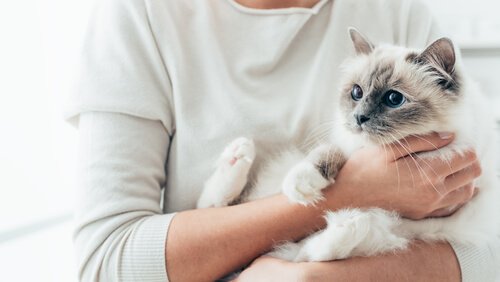Pet Owner or Pet Lover?

Owning a pet is something so wonderful that it even helps alleviate depression. This is because their wonderful presence not only makes people feel more comfortable and accompanied, but also loved, and responsible for a life. That’s why there is several people who become a pet lover.
Despite this, throughout history, there have only been two types of people when it comes to pets, apart from those who don’t like them.
These people are pet owners, or people who can’t or don’t want to have a pet for several reasons, but love them as much or more than an owner.
However, in recent times, the so-called “pet lover” has been born. This individual is the type of person who idolizes their pet, to the point of having strong emotions for their little friend.
If that sounds confusing to you, below is an explanation of the difference between a pet owner and a pet lover.
Differences between a pet owner and a pet lover

As you might suspect, these two types of people are difficult to tell apart. So, My Animals decided to explain some of their traits, and how they treat their pets so that you can tell the differences more easily. Here are the most obvious ones:
Sleeping
When it’s time to go to bed, a pet owner will make sure that their little friend is in the place that has been prepared for them to sleep in.
Once the owner sees that everything is in order, he/she and their pet will fall asleep peacefully in their own separate beds.
On the other hand, a pet lover won’t have to carry their little one to his sleeping place and go back to their own bed. These people would rather sleep next to their pet in order to spend more time together.
It’s far from being a nuisance to this kind of person. The love they have towards their pet is so great that their company will not only be always welcome, but also very desired.
Way of looking at animals
Like many parents, pet owners will always see their animals as the most beautiful ones of all. It doesn’t matter what others say.
Due to the enormous affection, they feel towards them, these people will see their companions as the best and most beautiful pets in the entire universe.
Unlike pet owners, a pet lover is characterized not only by loving their pets unconditionally, but also by loving all animals equally.
It doesn’t mean they love their own pets any less — far from it. These people love all species and have affection and admiration for all of them.
Getting emotional over movies and documentaries
In the movie world, there are cinematographic works and journalistic documentaries that have animal protagonists. Many of them have been famous.
When a pet owner sees a creature going through some kind of adversity in a film, they won’t necessarily feel bad. That’s because they understand that their pet isn’t suffering in any way.
However, a pet lover will feel very moved by a film or documentary. Also, they won’t able to avoid feeling sentimental when thinking about the fact about what they’re seeing could happen to their pet.
Free time
When it’s weekend or while on vacation, a pet owner will stay at home resting or they’ll go out somewhere to do something different.
When it’s the latter case, they will usually spend time alone or with their friends or family. That way they can distract themselves from the stress of daily life, and get reenergized.
On the other hand, once a pet lover gets some free time, they’ll spend it looking for places that allow pets.
Expenses

A pet owner will treat their pet like a friend they’re paying inviting. They will only buy what’s indispensable for their pet’s diet and health.
Far from being like that, a pet lover will have no problems about spending a lot of money on products beyond those, such as toys and clothing.
Now since you’ve seen the differences between them. Which one do you consider yourself to be?